We include products in articles we think are useful for our readers. If you buy products or services through links on our website, we may earn a small commission.
What is the Healthiest Way to Cook and Eat Eggs?
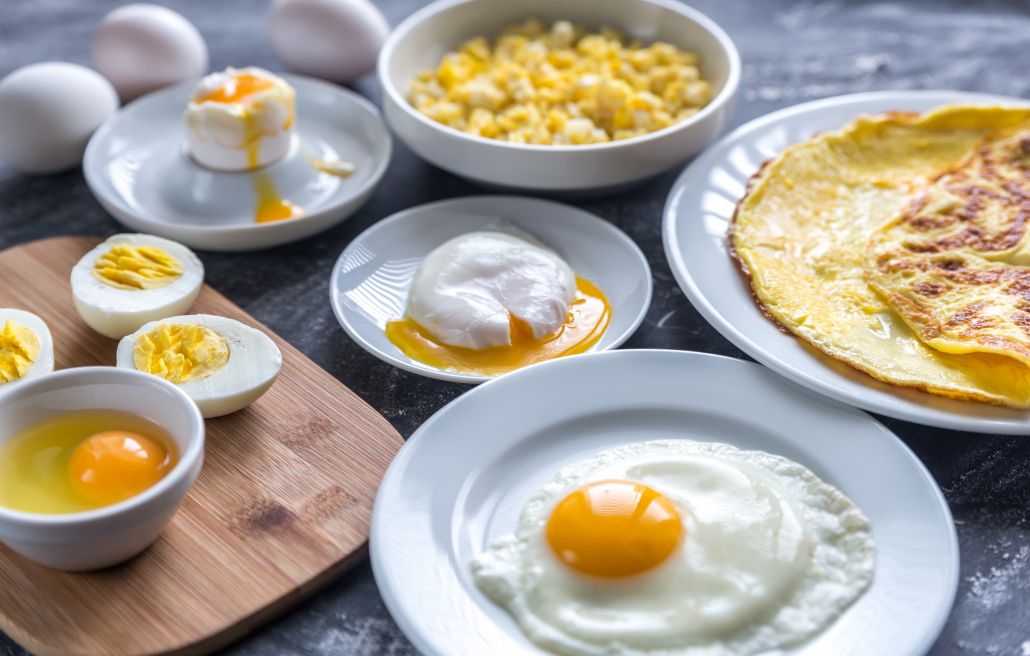
Eggs are a bonafide superfood. They’re packed with all the nutrients needed to grow an animal, including fats, protein, vitamins, and trace minerals. But what most people don’t know is that how you cook your eggs can have a big impact on how healthy they are. In this article, we’ll explore the healthiest ways to cook and eat eggs.
Our goal is to help you get the most nutrition out of your eggs with the least exposure to unhealthy compounds that can result from cooking.
Table of Contents
Nutrients in Eggs
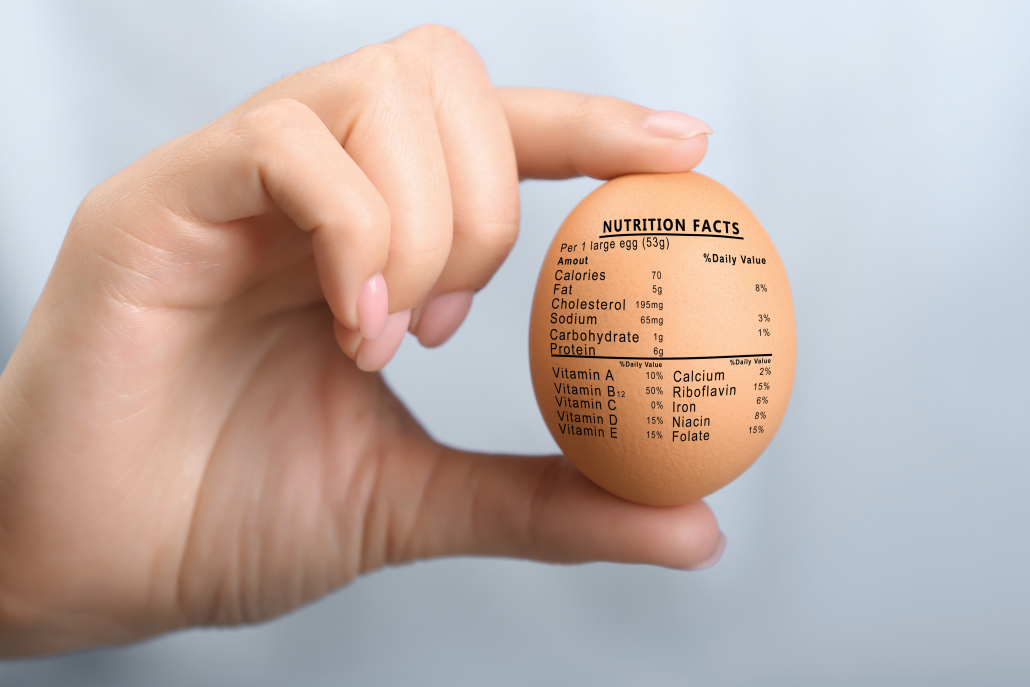
Before jumping into the healthiest ways to cook and eat eggs, let’s take a moment to highlight what makes eggs so nutritious in the first place.
Fats in Eggs
Eggs supply a healthy blend of saturated fat, monounsaturated fat, and a small amount of polyunsaturated and omega-3 fatty acids.
| Healthy Fats Per 100 grams of Eggs | |
| Saturated Fat | 3 grams |
| Monounsaturated Fat | 4 grams |
In case you were still worried about saturated fats, modern studies show no association between saturated fat consumption and (1) all-cause mortality, (2) coronary heart disease (CHD), (3) CHD mortality, (4) ischaemic stroke, or (5) type 2 diabetes in healthy adults. [2]
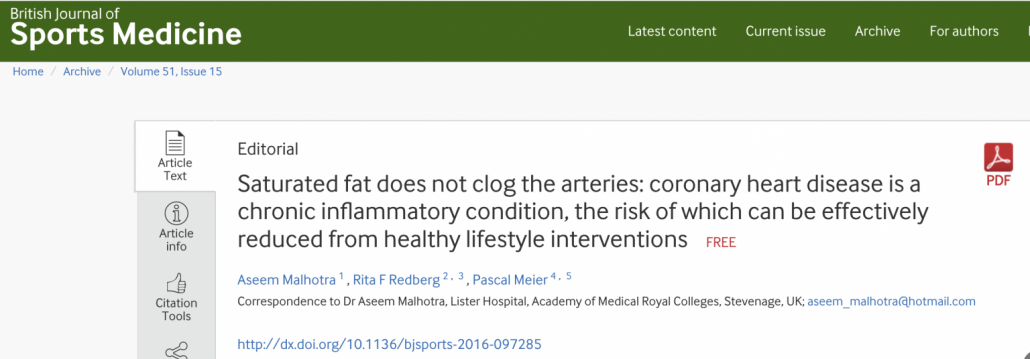
In fact, heart disease is an inflammatory disease likely caused by high intake of carbs and refined sugars along with polyunsaturated fatty acids (PUFAs) from seed “vegetable” oil. 5
No surprise that these two substances are the cornerstone of the standard American diet.
So what does eating eggs really do for health?
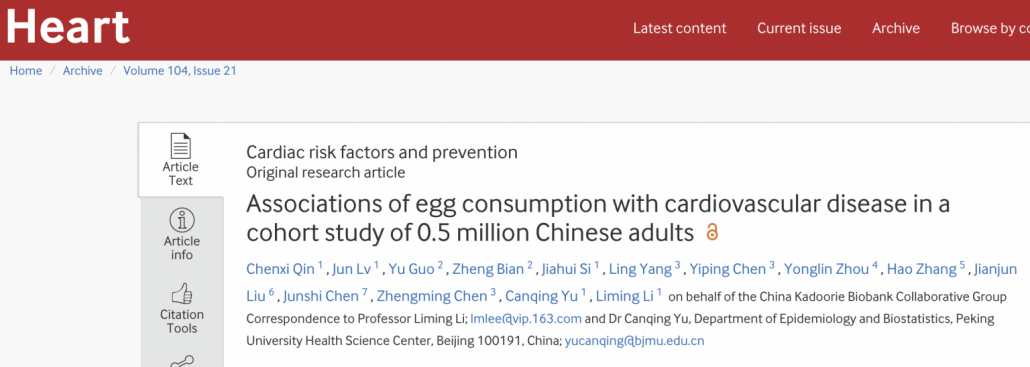
The above study followed half a million Chinese adults. It found that people who ate eggs daily had [5] :
- 14% lower risk of major cardiac events
- 11% lower risk of CVD
- 12% lower risk of ischemic heart disease
- 18% lower risk of CVD death
Be concerned about Carbs, not cholesterol
Studies show that the cholesterol in food is benign for most people.
But getting more than 60% of your calories from carbs lowers your “good” HDL cholesterol. And it raises your triglycerides–both of which can have negative consequence on your heart health. [33]
Proteins in Eggs
The proteins found in eggs are the most efficient of any food. Compared with other foods your body can use more protein per gram from eggs than any other source. [6]
Antioxidants Lutein and Zeaxanthin
Some of the healthiest parts of eggs don’t even show up on the nutrition label.
We’re talking about lutein and zeaxanthin.
These two antioxidants protect your vision by vanquishing free radicals that can accumulate in your eyes. [34] [35]
Research shows that they reduce age-related macular degeneration (AMD), and they can impede cataracts. [36] [37]
These antioxidants may even be protective against the harmful blue light coming from your screen right now. [38] [39]
Choline
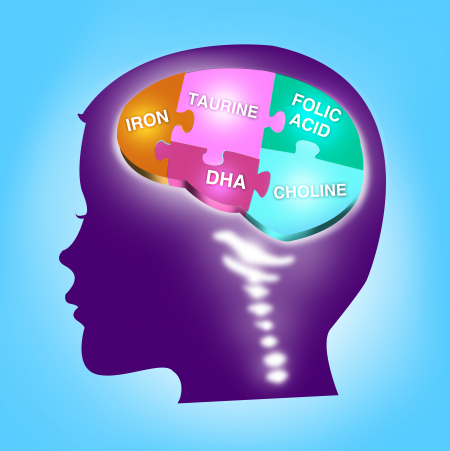
Choline is another nutrient in eggs that most people haven’t heard of. Yet it plays a key role in various bodily functions, including [7] :
- synthesis of neurotransmitters
- cell-membrane signaling
- lipid transport
- methyl-group metabolism
- brain development
- memory development in infants
- can lower the risk of neural tube defects in infants
- especially vital for pregnant and nursing women
Choline deficiency has been linked to liver disease, heart disease, and potential neurological disorders.
Egg Nutrient Table
On average, two whole eggs (100 grams) provide the following nutrients
| Calories | 75 | 5% |
| Fat | 5.5 | 8% (N/A for Keto/ Low-Carb) |
| Saturated Fat | 1.5 | 5% (N/A for Keto/ Low-Carb) |
| Protein | 6.5 | 14% |
Vitamins
| Vitamin A | 400 IU | 8% |
| Vitamin D | 44IU | 7% |
| Vitamin E | 1.2 mg | 6% |
| Riboflavin | .3 mg | 20% |
| Folate | 24 mcg | 6% |
| Vitamin B6 | .1mg | 4.5% |
| Vitamin B12 | .6 mcg | 23% |
| Pantothenic Acid | .7 mg |
Minerals
| Nutrient | Amount | DV |
| Calcium, Ca | 28.00 mg | 2 % |
| Copper, Cu | 0.036 mg | 4 % |
| Fluoride, F | 0.6 mcg | |
| Iron, Fe | 0.88 mg | 5 % |
| Magnesium, Mg | 6.00 mg | 2 % |
| Manganese, Mn | 0.014 mg | 1 % |
| Phosphorus, P | 99.00 mg | 14 % |
| Potassium, K | 69.00 mg | 1 % |
| Selenium, Se | 15.3 mcg | 28 % |
| Sodium, Na | 71.00 mg | 3 % |
| Zinc, Zn Choline | 0.65 mg 147mg | 6 % 27% |
How Cooking Effects Egg Nutrition
Some people swear by raw eggs. Others insist on cooking them. Who’s right? Let’s explore.
How Cooking Eggs Effects Protein
Cooking eggs makes the protein more digestible.3
Studies show that found that the human body could use 91% of the protein in cooked eggs, compared to only 51% in raw eggs. 4
| Useable Protein in Cooked Eggs | Useable Protein in Raw Eggs |
| 91% | 51% |
The protein in raw eggs exists in separate complex structures. Whereas when you cook eggs, you break down the bonds keeping them separate. The proteins then bond together in less complex clusters that are easier for your body to digest.
Cooking eggs also unlocks biotin from its bonds with the protein avidin in egg whites.
Therefore cooking eggs makes biotin easier to absorb. 5
How Cooking Eggs Effects Vitamins and Minerals
Though cooking eggs makes the protein more available, it can reduce the presence of other nutrients.
Vitamin A
Cooking can reduce vitamin A in eggs by 17-20%. 6
Vitamin D
One rule of thumb is that the shorter the cooking time–even at high temperatures–the less nutrients are lost.
We see this in research on vitamin D, where eggs backed for 40 minutes lost up to 61% of their vitamin D. But when eggs are fried or boiled they lost only compared to up to 18% of vitamin D. (11
Antioxidants
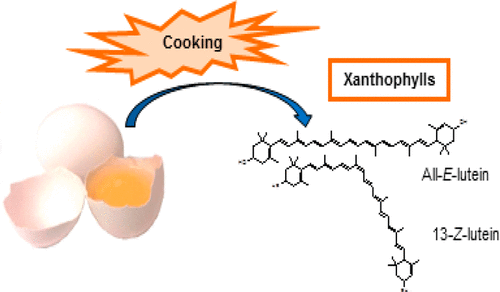
Studies show that cooking can significantly reduce various antioxidants in eggs. 789
A study looking at the effects that cooking eggs has on antioxidants found that boiling, frying, and microwaving eggs reduced various antioxidants by 6-18%. 10
A study specifically exploring the effects of cooking on lutein zeaxanthin found that scrambled eggs showed significantly lower bioaccessibility compared to boiled eggs. 4
Cooking Eggs Can Oxidize the Cholesterol
Egg yolks are high in cholesterol.
When you think of eggs, you probably think of cholesterol. Though cholesterol is not bad for us, eggs are one of the highest cholesterol foods, providing around 212 mg per egg.12
It’s important to note the idea that despite the dietary misinformation of the past, the cholesterol you get from food is not significantly associated with cholesterol levels in your blood. This reality is reflected in the fact that the USDA no longer puts an upper limit on daily cholesterol intake.
With that said, the cholesterol in eggs can be made less healthy when subjected to high heat.
Heating cholesterol can result in oxidation and the creation of compounds called oxysterols.
There’s now no recommended upper limit on daily cholesterol intake in the United States.
However, when eggs are cooked at high temperatures, the cholesterol in them may become oxidized and produce compounds known as oxysterols. 1314
Though eggs have not been linked to heart disease, the presence of oxysterols in the blood has been. [41] [42]
However, it’s important to note that studies show that nearly all oxysterols come from consuming fried junk food and not eggs. [43]
It’s also important to consider that cholesterol that becomes oxidized in the body from consuming processed foods alongside added sugars is far more unhealthy than oxidized cholesterol in the food you eat. [44]
The bottom line is that even with the presence of some oxysterols, there have not been any studies linking eggs with an increased risk for heart disease. Though many studies have tried to make this link. 19 20 21 22 23 24
Healthiest Ways to Cook Eggs
Of the numerous ways to cook and eat eggs, there are preparations that reduce oxidization of cholesterol, unlock proteins, and conserve nutrients better than others.
Yet none of the ways of cooking eggs have been linked to negative health outcomes.
In other words, all the ways of cooking and eating eggs are healthy–our goal is simply to find the healthiest way.
1. Poached Eggs
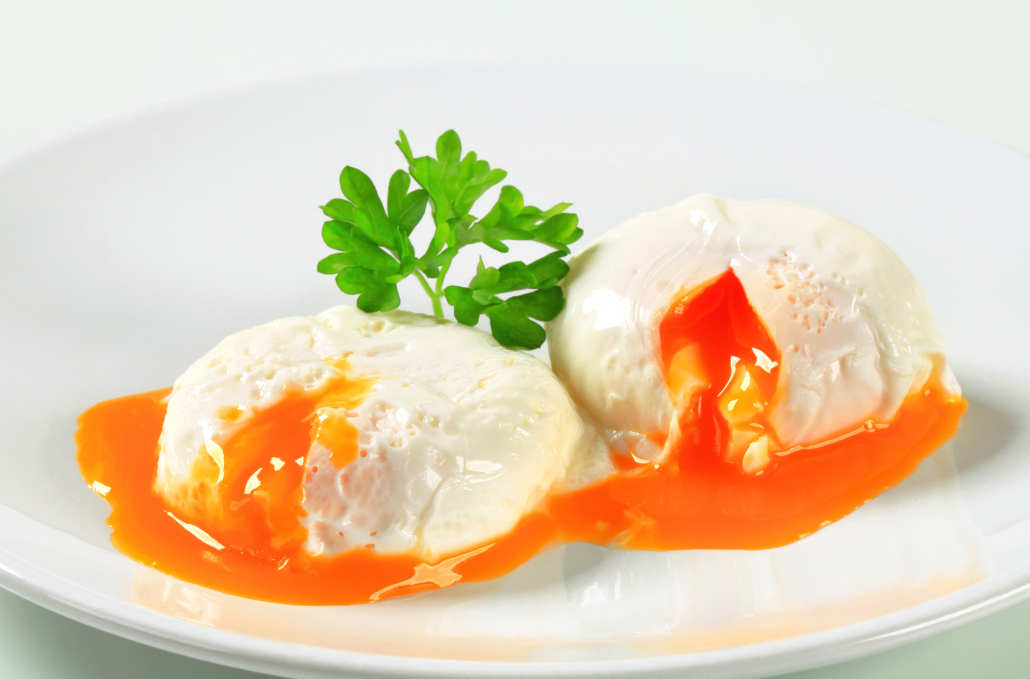
Based on the goals of getting the most nutrients out of your eggs with the least risk of oxidizing cholesterol, poaching is the number one healthiest way to cook and eat eggs.
Poached eggs are exposed to relatively low heat for shorter periods of time, and the yolks remain intact.
How to poach eggs
To poach eggs begin by simmering water between 160–180°F (71–82°C).
- Use a whisk to get the water spinning.
- Crack in an egg and let cook for 1–3 minutes.
2. Hard Boiled Eggs
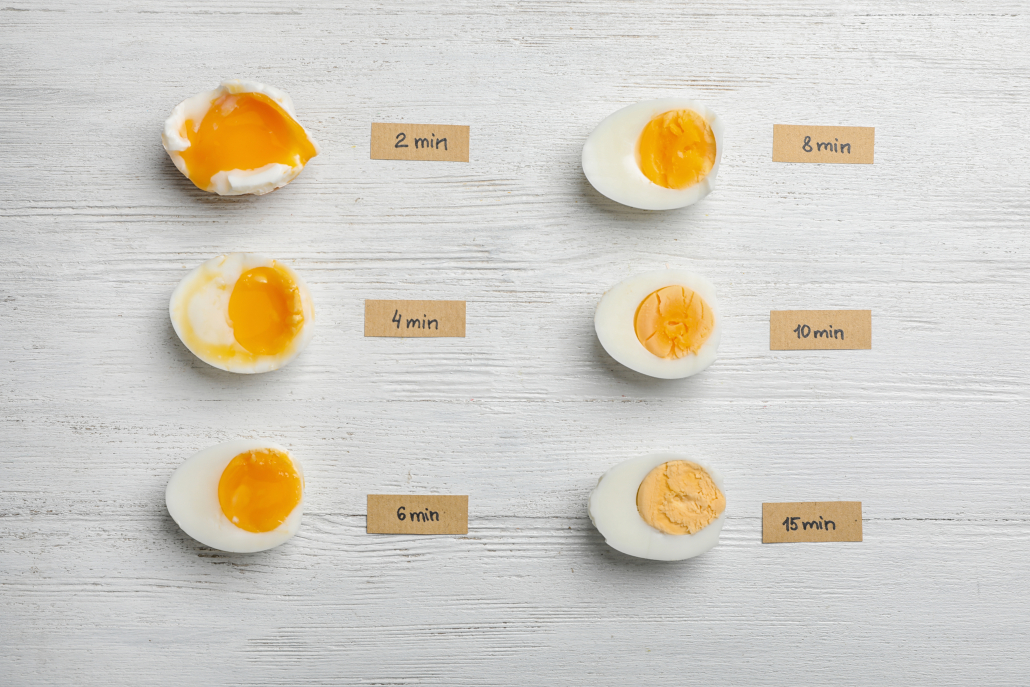
Hard boiling eggs keeps the yolks intact, protecting them from the oxidization that can occur with direct heat exposure.
As we mentioned above, hard boiled eggs retain 3x more vitamin D than baking eggs. [45]
Hard boiled eggs are also the most convenient way to eat eggs, making them a great carnivore diet snack, or keto snack.
3. Fried Eggs
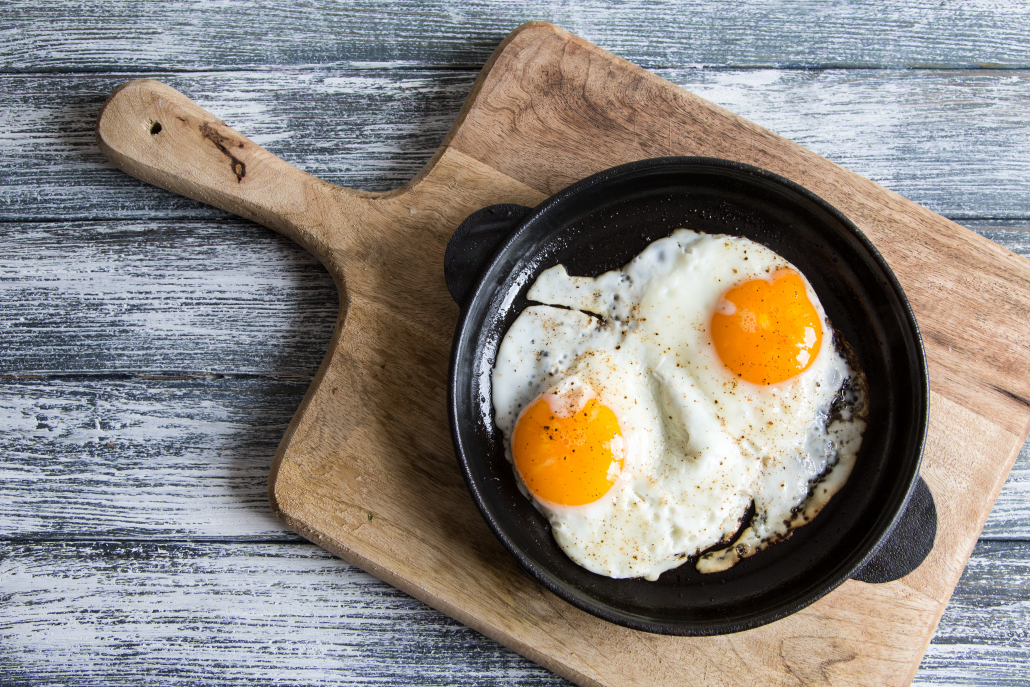
Frying eggs sunny side up for short periods of time protects the yolk from oxidization and creates a delicious variation in texture. The firm protein and runny center make a great topping on a juicy steak or burger.
4. Scrambled Eggs
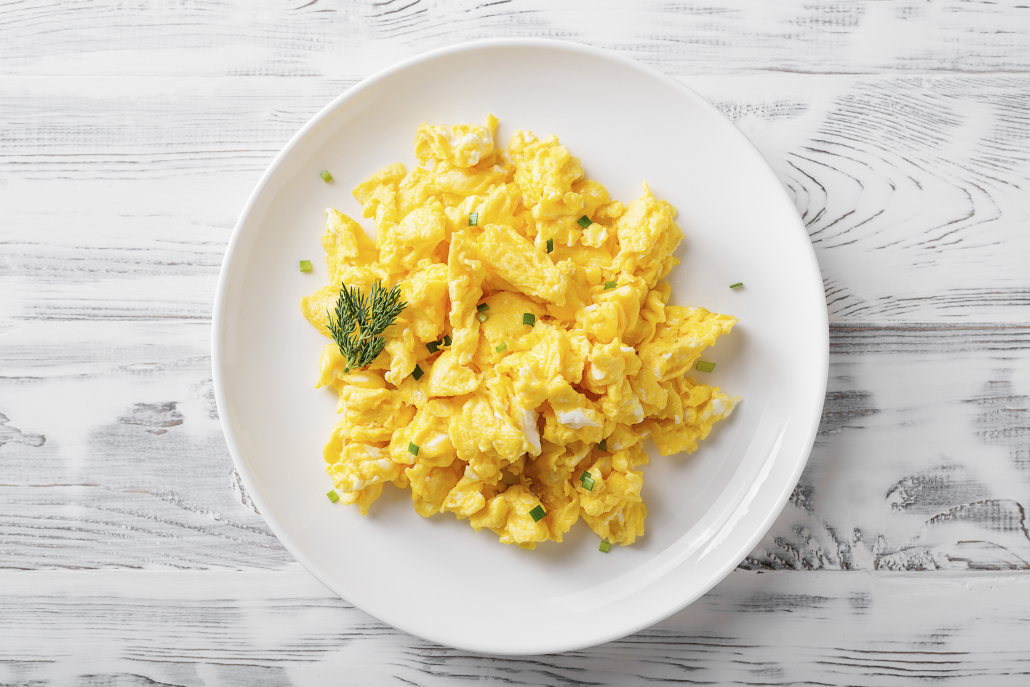
Scrambling eggs is the most popular way to cook eggs in America. 36% of all the eggs we eat are scrambled!
Though scrambled eggs expose cholesterol to heat and potential oxidation, it’s not really something to worry about.
If you are concerned, opt for a soft scramble.
Scrambled eggs also allow for the easy addition of healthy fats that can boost your carnivore macro and keto macro percentages.
How to Scramble Eggs
- In a medium bowl, lightly beat 2-4 eggs with 1/4 teaspoon salt.
- Add in 2-5 tablespoons of heavy cream (optional)
- In a medium skillet over low heat, melt 1 tablespoon of the butter, ghee,or tallow: swirl to cover bottom and sides of pan.
- Add the eggs, and cook slowly, occasionally scraping them from the pan and turning them over until most of the liquid has thickened. Takes 5-8 minutes. The less cooking time the healthier they will be.
- Remove eggs from heat, and gently fold in another 1 tablespoon of butter. Enjoy hot!
5. Raw Eggs
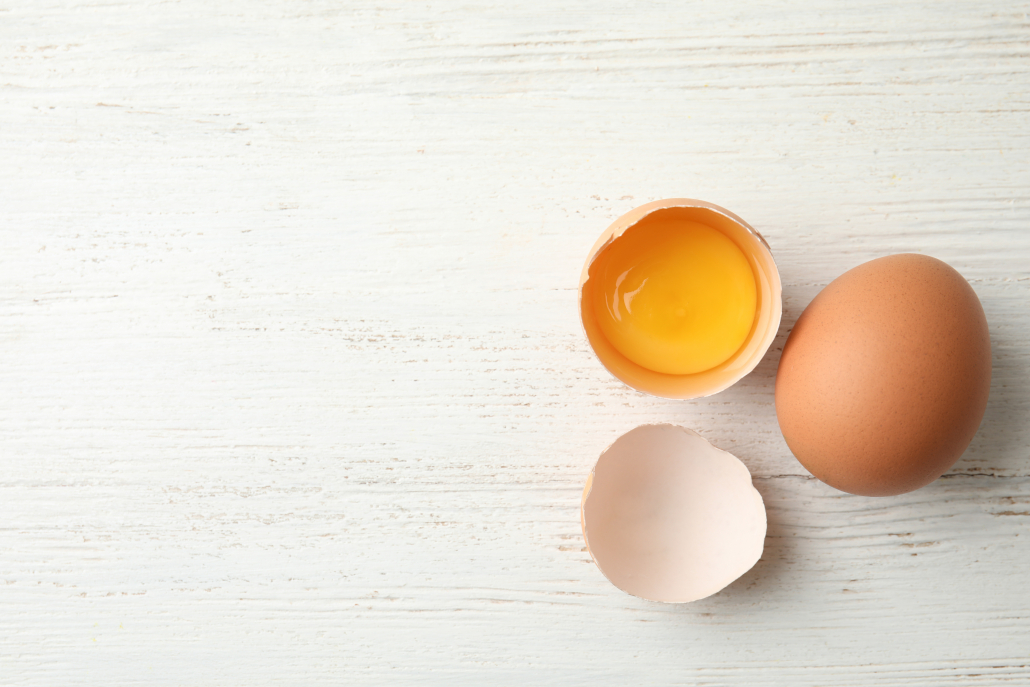
Many people swear by raw eggs.
As we’ve seen above, cooking eggs can reduce antioxidants and other nutrients. Though it can reduce the bioavailability of some proteins.
The Centers for Disease Control and Prevention (CDC) recommend against eating raw eggs due to the possibility of salmonella poisoning. Eggs can become contaminated with salmonella even before the shell is formed.
The CDC estimates that around 1 in every 20,000 eggs has salmonella.
Watch Dr. Saladino get into the finer points of eating raw meat and eggs below:
Tips for Cooking and Eating the Healthiest Eggs
These tips will help you cook and eat healthy eggs no matter how you prepare them.
1. Select the Highest Quality Eggs you Can Afford

The happier and more naturally the animal is raised, the higher quality the food. This goes for eggs and every other animal product.
The best eggs to buy are pasture-raised from your local farmers’ market.
If you don’t have access to true farm eggs opt for certified third-party certified organic, pasture-raised, Certified Humane or Animal Welfare Approved.
USDA grade A or AA are as affordable as they are nutritious.
Watch out for labels like hormone-free, farm-fresh, cage-free, antibiotic-free, natural, and fertile. These are just marketing gimmicks and are not certified to be true or have a standard value.

In 2007 Mother Earth News conducted a survey to compare USDA caged eggs with the eggs from 14 flocks of pasture-raised egg producers.
Pasture-raised eggs had:
- 700% more beta carotene
- 1/3 less cholesterol
- 2/3 more vitamin A
- 200% more omega-3 fatty acids
- 300% more vitamin E
Other studies have found that pasture-raised eggs have higher vitamin D [51]
| Values per 100 grams | Vitamin E | Vitamin A | Beta Carotene | Omega-3s | Cholesterol |
| Eggs from Caged Birds | .97mg | 487IU | 10mcg | .22g | 423mg |
| Pasture-Raised Eggs | 3.73mg | 792IU | 79.03mgc | .66g | 277mg |
Check out our full guide to the best eggs to buy.
2. Don’t Overcook Your Eggs
Cooking for longer and hotter depletes more nutrients. And exposing the yolk to high heat may cause oxidization.
However, if it’s a choice between short and hot and long and less hot, shorter appears to be better for conserving nutrients.
3. Use Heat Stable Cooking Fat
For the most satiating and nourishing eggs, cook with heat-stable whole animal fats like tallow, lard, ghee, and butter.
The bottom line on the Healthiest Ways to Cook and Eat Eggs
The shorter you cook your eggs, and the lower the heat, the more nutrients they will retain, and the less oxidization of cholesterol will occur.
This makes poached and soft boiled eggs the healthiest.
Boost your egg nutrition by choosing the highest quality eggs you can afford and cook using heat-stable and highly nutritious saturated animal fats like butter and tallow.
Most importantly, eggs are extremely healthy any way you cook them. There are no studies that show cooking eggs any particular way is bad for you.
The best approach is simply to enjoy the heck out of eggs any way you prefer to cook them.




















